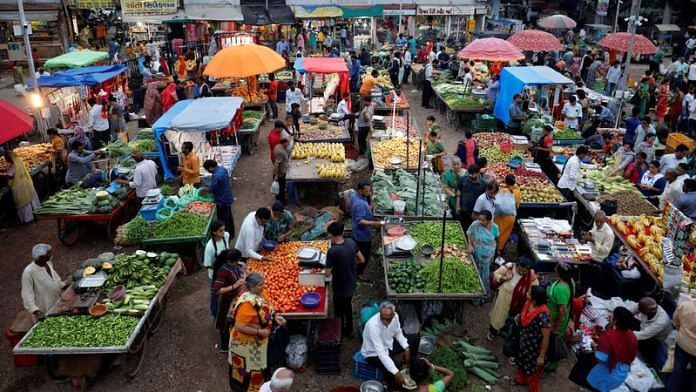Bengaluru: The International Monetary Fund has reclassified India’s “de facto” exchange rate regime to “stabilized arrangement” from “floating” for December 2022 to October 2023, following an article IV review of the country’s policies.
The reclassification follows the Reserve Bank of India’s likely interventions in the foreign exchange market, where the rupee moved in a “very narrow range” against the U.S. dollar, “suggesting intervention likely exceeded levels necessary to address disorderly market conditions,” IMF said in the report.
The IMF’s Article IV consultation report reviews a country’s current and medium-term economic policies and outlook.
In a press release, the IMF said its staff diverged from Indian authorities’ view “that exchange rate stability reflects improvements in India’s external position and that foreign exchange interventions have been used to avoid excessive volatility not warranted by fundamentals.”
Between December 2022 and October 2023, the rupee traded in a range of 80.88-83.42 against the U.S. dollar. Since October, the range has narrowed to 82.90-83.42 and volatility expectations have fallen to the lowest in over a decade.
RBI Governor Shaktikanta Das said in October that currency market interventions should not be seen as “black and white” and is needed to prevent volatility and build reserves.
India’s forex reserves are assessed at just above 100% of the IMF composite reserve adequacy metric, the report said.
“Going forward, a flexible exchange rate should act as the first line of defense in absorbing external shocks,” the fund said.
The IMF also projected India’s economy will grow at 6.3% in both the current fiscal year and the next, below the RBI’s forecast of 7% in the current year.
“India has potential for even higher growth, with greater contributions from labor and human capital, if comprehensive reforms are implemented,” the IMF said.
Headline inflation is expected to gradually decline to the target although it remains volatile due to food price shocks, it added.
Volatile food prices pushed up retail inflation to 5.55% in November, above the central bank’s target of 4%.
The fund called for India to pursue an “ambitious” medium-term consolidation efforts given elevated public debt levels, while welcoming the near-term approach of accelerating capital spending while tightening the fiscal stance.
The federal government’s fiscal deficit is targeted at 5.9% for the current fiscal year with an aim to bring it down to 4.5% by 2025-26.
(Reporting by Ira Dugal in Mumbai; Additional reporting by Rama Venkat in Bengaluru; Editing by Sherry Jacob-Phillips and Varun H K)
Disclaimer: This report is auto generated from the Reuters news service. ThePrint holds no responsibilty for its content.
Also read: IMF projects 6.3% growth for India in 2023-24 says growth supported by macroeconomic stability



